Fiction
Fiction

The World With Its Mouth Open: Stories
In eleven stories, The World With Its Mouth Open follows the inner lives of the people of Kashmir as they walk the uncertain terrain of their days, fractured from years of war. From a shopkeeper’s encounter with a mannequin, to an expectant mother walking on a precarious road, to a young boy wavering between dreams and reality, to two dogs wandering the city, these stories weave in larger, devastating themes of loss, grief, violence, longing, and injustice with the threads of smaller, everyday realities that confront the characters’ lives in profound ways. Although the stories circle the darker aspects of life, they are—at the same time—an attempt to run into life, into humor, into beauty, into another person who can offer refuge, if momentarily.
Zahid Rafiq’s The World With Its Mouth Open is an original and powerful debut collection announcing the arrival of a new voice that bears witness to the human condition with nuance, heart, humor, and incredible insight.

Witch: Anthology
An exploration of the Witch, as radical archetype, in ancient and contemporary life.
An adult woman haunted by her childhood muses on the foster system, institutions, and the medieval tale of a girl given to a witch. A genderqueer Brooklynite learns of their past life as a murdered sorceress. An uptight participant at a Northern California witch camp finds community in the kitchen. A professor uses magic to help students under attack by right-wing politicians.
In this collection of manifesto, poetry, playscripts, and prose, the archetype of the Witch is honored and unpacked, poked and prodded, owned and othered. From work centered in antiquity to writing which illustrates how primordial occult energies continue to enliven our world today, WITCH: Anthology lays bare a wilderness of myth, magic, trickery, and power swarming beneath the surface of contemporary life.
With work from CAConrad, Edgar Fabián Frías, Amanda Yates Garcia, Ashley Ray, Brooke Palmieri, Yumi Sakugawa, Kai Cheng Thom, Ariel Gore, Myriam Gurba, Fariha Róisín, and many others.
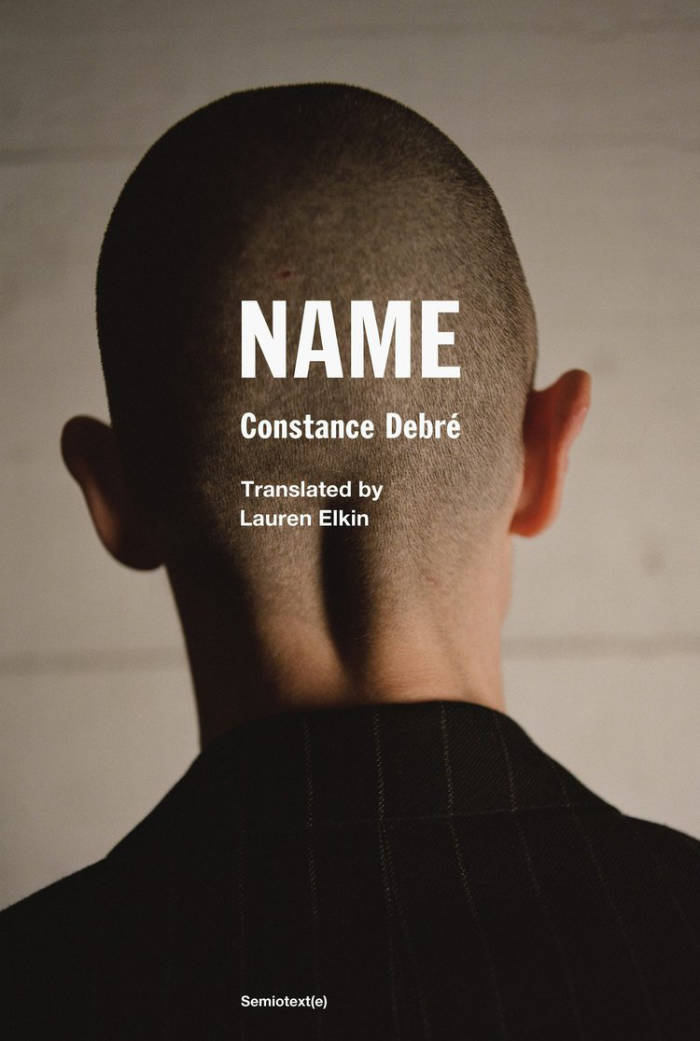
Name
Name, the third novel in Constance Debré’s acclaimed trilogy, is at once a manifesto, an ecstatic poem, and a political pamphlet. By rejecting the notion of given identity, her narrator approaches the heart of the radical emptiness that the earlier books were pursuing.
Newly single, and having recently come out as a lesbian, the narrator of Debré’s first two novels embarked on a monastic regime of exercise, sex, and writing. Using the facts of her own life as impersonal “material” for literature, Playboy and Love Me Tender epitomized what Debré (after Thomas Bernhard) has called “antiautobiography.” They introduced French and American readers to her fiercely spare prose, distilled from influences as disparate as Saint Augustine, Albert Camus, and Guillaume Dustan. “Minimalist and at times even desolate,” wrote the New York Review of Books, these works defied “the expectations of personal growth that animate much feminist literature.”
Name is Debré’s most intense novel yet. Set partly in the narrator’s childhood, it rejects Proustian notions of “regaining” the past. Instead, its narrator seeks a state of profound disownment: “We have to get rid of the idea of origins, once and for all, I’m not holding on to the corpses. … Being free has nothing to do with that clutter, with having suffered or not, being free is the void.” To achieve true freedom, she dares to enter this “void”—that is, dares to accept the pain, loss, and violence of life. Brilliant and searing, Name affirms and extends Debré’s radical project.
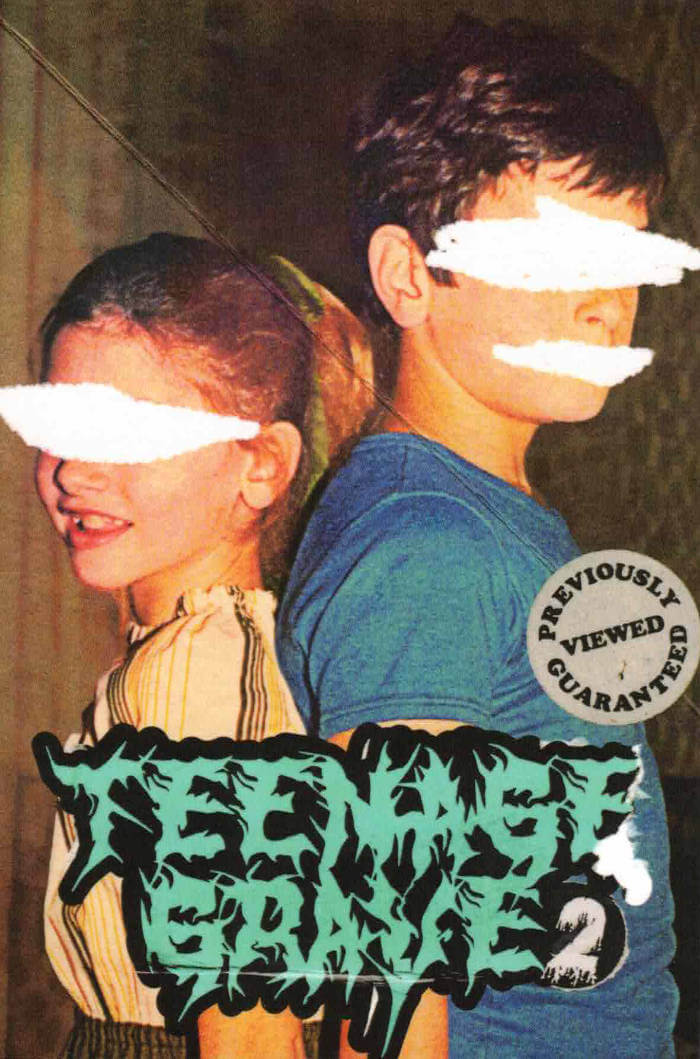
Teenage Grave 2
Sam Richard, Jo Quenell and 2 more
Blending splatterpunk, body horror, and transgressive fiction, Teenage Grave 2 immerses readers in a world of unrelenting terror. This masterful work of macabre fiction assaults the senses and challenges perceptions of safety, leaving readers deeply unsettled. Featuring Sam Richard, Justin Lutz, Brendan Vidito and Jo Quenell.
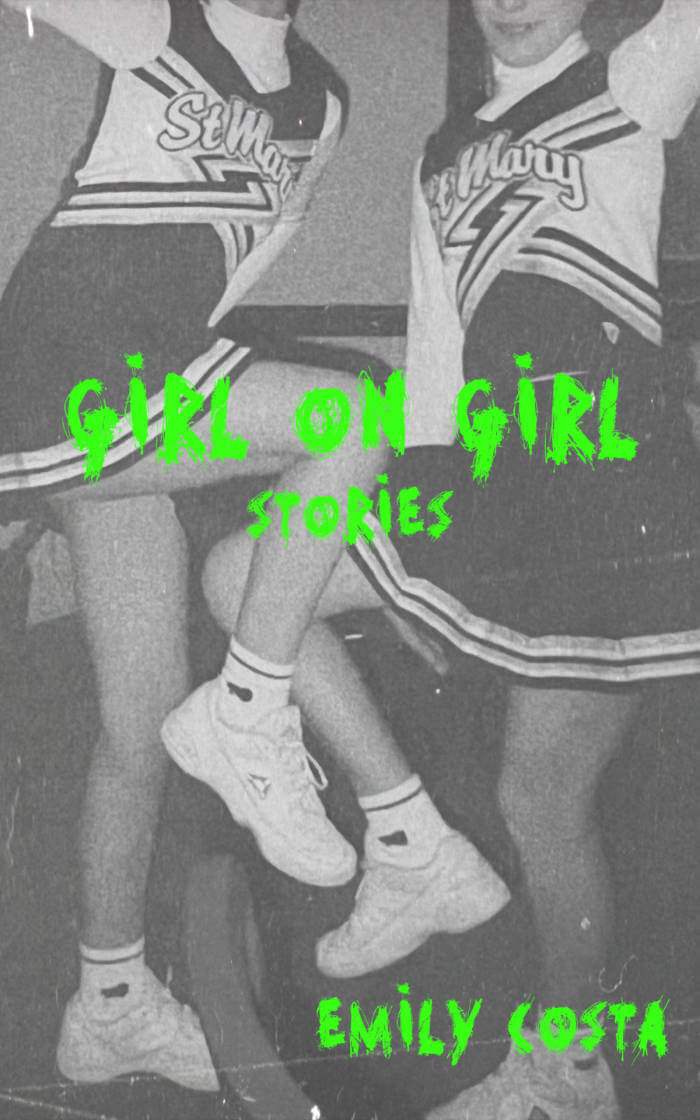
Girl On Girl: Stories
What happens when you peak in high school, or maybe earlier, or maybe not at all? When you hate your friends, or love them too much? When the warmth of nostalgia starts to slowly poison you? In Girl on Girl, Emily Costa explores desperation and loneliness, screen obsession, and casual cruelty as characters—mostly women and girls—struggle to be seen.
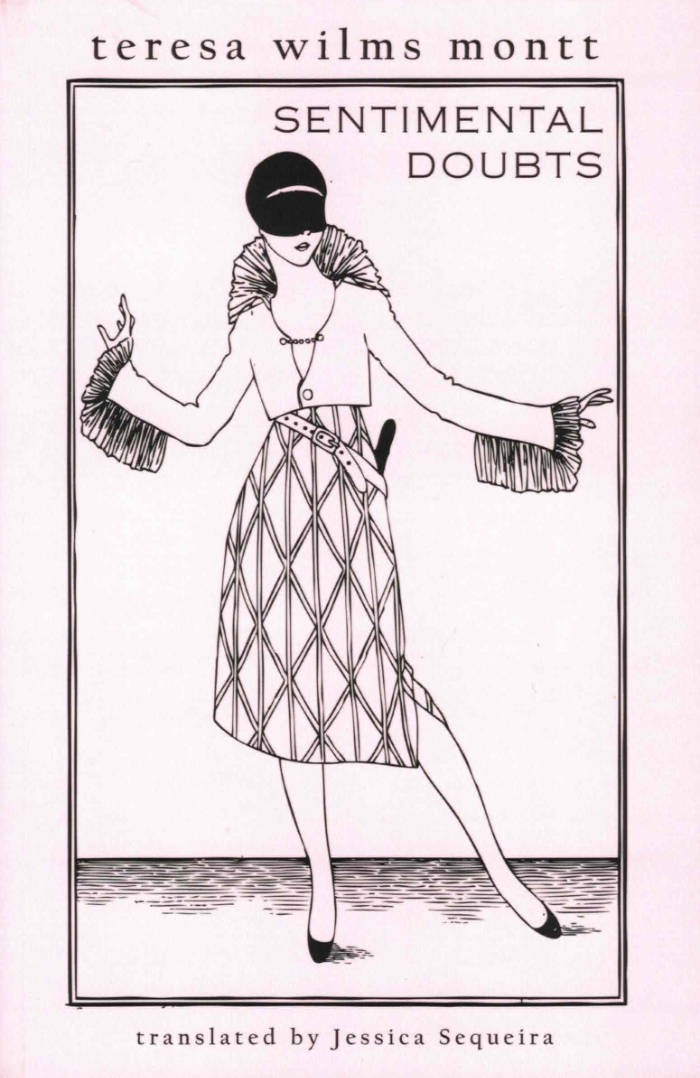
Sentimental Doubts
Teresa Wilms Montt, Jessica Sequeira
Sentimental Doubts, here translated into English for the first time by Jessica Sequeira, was iconic Chilean writer Teresa Wilms Montt’ s first book. It was originally published in 1917, in Buenos Aires, after the author had left an entire life behind her in Santiago: her husband, her parents, the convent where she’d been confined for supposedly committing adultery, and her two daughters, whom she was forbidden from seeing.
In this work, she communicates her “inquietudes”: the racing heart, the muttering mind, the explosion of doubts.
Wilms Montt subverts the religious charge of doubt to turn pain into eroticism, sadness into seduction, doubt into assertion, and there is a great beauty to be found in this restlessness and impressionistic shifting, these temporary glimmers of light on water.
Teresa Wilms Montt was born on September 8, 1893 in Viña del Mar, Chile, into an elite, well-connected family. Her first book, Inquietudes sentimentales, consisted of fifty poems with surrealist features, while her second, Los tres cantos, explored eroticism and spirituality. Both books enjoyed great success in Argentine intellectual circles. In 1918, she moved to Madrid, where she published two works widely recognized by Spanish literary critics: In the Stillness of Marble and Anuarí. Upon returning to Buenos Aires in 1919, she published her fifth book, Cuentos para hombres que todavía son niños. She died in 1921, in Paris, from an overdose of Veronal.
About the Translator: Jessica Sequeira was born in San Jose, California in 1989, and currently lives in Santiago de Chile. Her works include the novel A Furious Oyster (Dostoyevsky Wannabe), and the collection of essays Other Paradises: Poetic Approaches to Thinking in a Technological Age (Zero).
Her translations include Bernardo Couto Castillo' s Asphodels (Snuggly Books, 2020), Enrique Gómez Carrillo' s Sentimental Stories (Snuggly Books, 2019), Rafaela Contreras' s The Turquoise Ring and Other Stories (Snuggly Books, 2019), Adolfo Couve’ s When I Think of My Missing Head (Snuggly Books, 2018), and Liliana Colanzi’ s Our Dead World (Dalkey Archive).
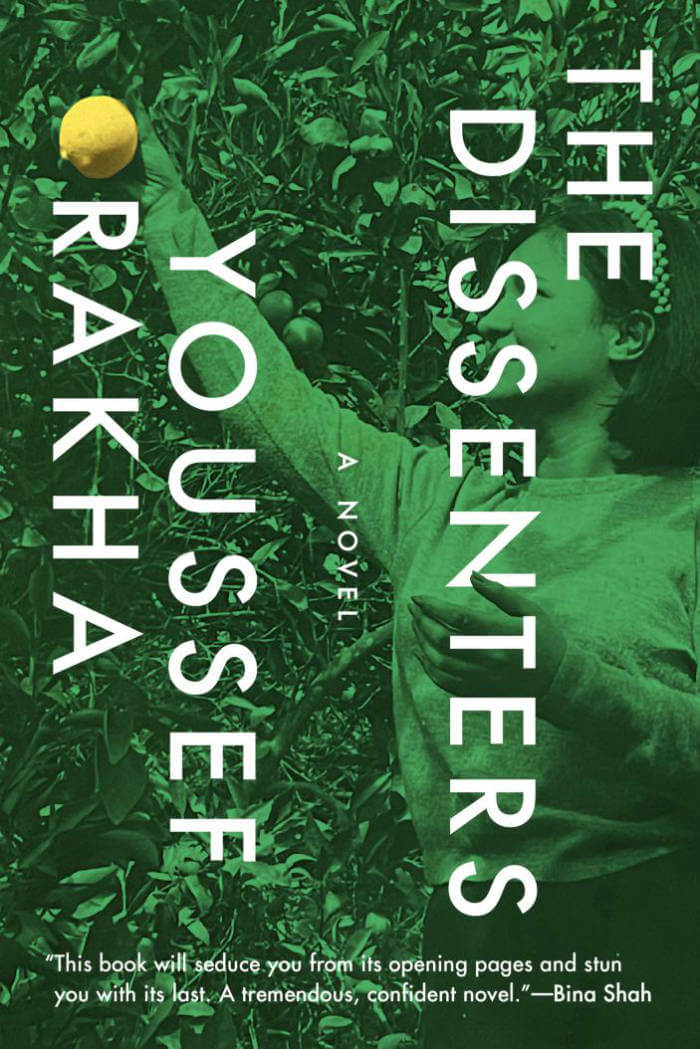
The Dissenters
A transgressive novel by an acclaimed writer that spans seventy years of Egyptian history.
Amna, Nimo, Mouna—these are all names for a single Egyptian woman whose life has mirrored that of her country. After her death in 2015, her son, Nour, ascends to the attic of their house where he glimpses her in a series of ever more immersive visions: Amna as a young woman forced into an arranged marriage in the 1950s, a coquettish student of French known to her confidants as Nimo, a self-made divorcee and a lover, a “pious mama” donning her hijab, and, finally, a feminist activist during the Arab Spring. Charged and renewed by these visions of a woman he has always known as Mouna, Nour begins a series of fevered letters to his sister—who has been estranged from Mouna and from Egypt for many years—in an attempt to reconcile what both siblings know about this mercurial woman, their country, and the possibility for true revolution after so much has failed.
Hallucinatory, erotic, and stylish, The Dissenters is a transcendent portrait of a woman and an era that explodes our ideas of faith, gender roles, freedom, and political agency.

WARMAN SCHOOL: UNACCREDITED & PROUD
WARMAN SCHOOL: UNACCREDITED & PROUD documents 8 years of writing prompts, movement activities, research, and experiences from LA Warman’s iconic anti-school, Warman School. Over 1500 students have passed through the hallowed halls of a Warman School Zoom room; you can also attend school! The book describes lore surrounding the founding and growth of the school as well as advice on how not to make money. You can also be a self-directed student and follow prompts from the most popular courses at the school: death, loneliness, erotics, god, and poetry. Part workbook and part lousy advice column: this book gives you everything you need to learn!
LA Warman also unearths her fucked philosophies for you to judge. The book centers around the idea that all knowledge is already inside your body, and through movement and writing activities, you can begin to open up this abundance. LA gives away every prompt she has used in class and every lesson plan so you can do class in your own space and time. You are the teacher. You are the student. You are the school.
LA Warman is a poet, sound artist, and teacher based in New York City. Her most recent poetic novella, titled Dust was published in 2022 by Inpatient Press. Warman is the author of Whore Foods, an erotic novella which received a Lambda Literary Award in 2020. She founded Warman School, a non-accredited and body-based learning center. The Warman School has taught over 1500 students online and in person. She teaches topics such as erotics, death, depression, and god. Pitchfork named her piece ADMSDP one of the top 100 songs of 2020. She has had performance and installation work in shows at MOCA Cleveland, ICA Philadelphia, Time-Based Art Festival, Poetry Project, and Open Engagement. Warman has presented performative poetics research at Brown University, Hamilton College, Reed College, Hampshire College, and others. Her work has been featured in media like Interview Magazine, Vulture, poem-a-day, Out Magazine, and Mousse Magazine.

Secrèt
Mystique des rues vides et peu éclatantes des banlieues pavillonnaires, ce court poème en prose interpelle par sa langue sombre. Dans une parodie de messe noire – beigeasse comme le crépis des façades –, Théo Robine-Langlois dépeint le monde mystérieux des maisons individuelles, du repli sur soi démonique, et des vieilles qui marmonnent entre leurs gencives au retour du marché, le panier plein de gros sel et de radis noirs en guise d'hostie. Les mots occitans qui ponctuent le texte comme des conjurations en accroissent l’escur.

Oraison funèbre pour Zelda1990
D’eux, il ne reste que les mots de celle qui a croisé leur route. Le crissement de pneus qui sifflent avant un malheur qui tarde à se produire. Sanctification plus que célébration, Oraison funèbre pour Zelda1990 est une tentative de communication au-delà de la matière physique de l’énonciation, un dialogue interne qui convoque « par moment le frère, par moment l’ami parti », toujours la ruine, la consommation de la séparation avec le tout. À travers quatre parties qui font écho à la structure des éloges funèbres de la Grèce antique, Romane Constant réouvre la poésie des plaies larges et profondes que les vers lapidaires d’Hélène Bessette – sur qui l’autrice mène un travail de recherche – ont laissé dans l’histoire moderne de la littérature, et signe un texte bouleversant sur la difficulté des choses qui ne (se) passent pas, la force de celles que l’on voit suspendues par le cou au bord d’une paix impossible à trouver. Oraison funèbre pour Zelda1990 est une douleur croissante, avec écoulement et rougeur.
Romane Constant vit et travaille à Paris. Elle explore à travers différents supports les questions relationnelles, d’intimité, du corps et du genre. Attachée aux Ardennes où elle a grandi, elle s’intéresse également à l’héritage de la classe ouvrière et aux traumatismes intergénérationnels.

Unsex Me Here
If Aurora Mattia is a switchboard operator, then Unsex Me Here is her call log. Please hold. There’s someone on the other line. A spider, a sibyl, an angel, a mermaid, a goddess, or an ex-girlfriend.
Unsex Me Here is a prayer book tied together by the strings of a corset. Glamorous ramblers, haunted by the sense of another world drawing near, wander in and out of its inexplicable twilight. From a West Texas town with a supernatural past to a stalactite cavern in the birthplace of Aphrodite, from hotel rooms to gardens to the far horizon of a thought, they seek the source of the disturbance in their minds. Heartbreak is not so far from rapture; holy babble is another kind of gossip. Every pilgrimage is as dense with symbolism as it is refined by desire.

I Love Shopping
Chickens have a collective soul. Heaven is full of the skateboarders you kissed in middle school. If the algorithm is its own hell, Lauren Cook, author of the critically (and uncritically) acclaimed Sex Goblin, stands in front of it fully armored. I Love Shopping invites its readers to inhabit a world just like ours, reflected through a big, benevolent funhouse mirror.
First published in a limited edition, this is the first trade edition of the cult classic.

hello, world?
Abandoned by their Dutch partner after giving up their home and their job to follow him to the Netherlands, humanities scholar Seasonal finds themself single in a strange place for the first time in a decade.
Dipping into the rabbit hole of digital eroticism, Seasonal soon meets László, a male sub who volleys back their cerebral sexts and is seeking a dominant guide. His dating-app profile—a photo of Foucault and the ingenuous greeting “Hello, World?”—thinly veils his desire to be annihilated. It's a desire that Seasonal senses they can fulfill. But to do this means crossing the frightening gap between their desires and capacities.
Seasonal and László embark on an experiment in remaking intimacy outside the Republic of Gender. But as it continues, the two realize they are staging separate confrontations with domination: Seasonal finds they must confront their own relation to the violence and anger that marked their upbringing in working-class, small-town Australia, while László stages his own confrontation with his decision to leave Viktor Orbán’s Hungary. As they attempt to improvise a theater of domination that opens up possibilities of reciprocity, the energies of their sexuality stalk this collaboration, threatening to give them exactly what they bargained or begged for.
A feminist paean to perversity in the tradition of Pauline Réage’s Story of O and Anaïs Nin's Delta of Venus, Anna Poletti's hello, world? dares to fully inhabit female power, and to fully face the violence, beauty, and uncharted territories of human sexuality.

Sarahland
Sarahland est un ouvrage de fiction américain contemporain qui se découpe en dix nouvelles, toutes reliées par les personnages de Sarahs et leurs parcours initiatiques à la fin de l’adolescence. Sam Cohen, autrice queer et juive, déploie un univers drôle et piquant autour des notions d’identité, de transition, de transformation, d’émancipation et d’apprentissage. Au fil d’histoires inventives, l’autrice explore la manière dont les narratifs qui nous sont assignés, les récits traditionnels, les identités qui nous pré-existent, sont dépassables. Elle construit alors avec ses personnages — presque toutes prénommées Sarah — de nouvelles histoires pour leurs passés ou leurs futurs, de nouvelles façon d’aimer la terre et ceux qui la peuplent, de nouvelles possibilités de vie en soi. Dans le refus pour chaque Sarah d’adhérer à un récit unique et uniformisant, l’autrice propose un lieu potentiellement meilleur pour nous toustes, un espace narratif qui n’exige aucune fixation de soi, aucune injonction consumériste, aucun compromis corporel: un lieu appelé Sarahland.
Née à Detroit aux États-unis, Sam Cohen vit et travaille actuellement à Los Angeles. Elle est une autrice de fiction dont les romans explorent des thèmes à l’intersection du féminisme, des études queers, et des pensées juives. Après avoir publié dans différentes anthologies et revues littéraires (Queer Flora, Fauna, and Funga, Weird Sister Collection, etc.), elle publie en 2021 Sarahland, un recueil de nouvelles. Elle enseigne l’écriture à l’université en tant que professeur d’écriture créative. Elle a été nommée et à gagné à de nombreux prix littéraires, notamment le ALMA Award (Best Jewish Story Collection of 2021), le Jewish Women’s Archive Book List, le Golden Poppy Award in Fiction (finaliste) ou encore le Chautauqua Janus Prize. Elle est en cours d’écriture de son prochain livre.
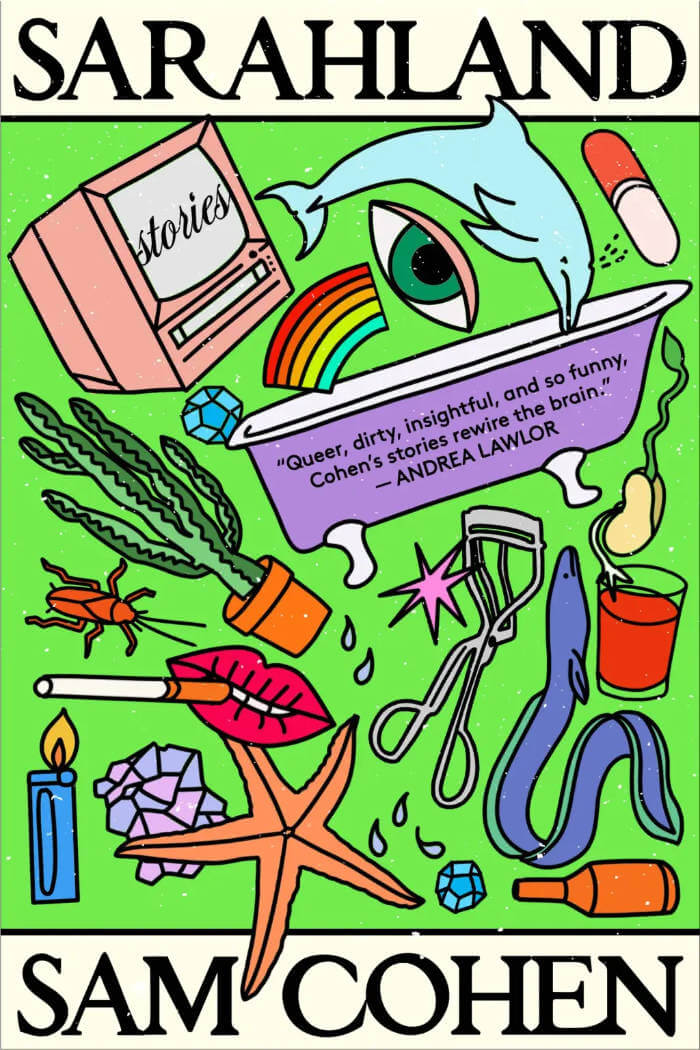
Sarahland
In Sarahland, Sam Cohen brilliantly and often hilariously explores the ways in which traditional stories have failed us, both demanding and thrillingly providing for its cast of Sarahs new origin stories, new ways to love the planet and those inhabiting it, and new possibilities for life itself. In one story, a Jewish college Sarah passively consents to a form-life in pursuit of an MRS degree and is swept into a culture of normalized sexual violence. Another reveals a version of Sarah finding pleasure—and a new set of problems—by playing dead for a wealthy necrophiliac. A Buffy-loving Sarah uses fan fiction to work through romantic obsession. As the collection progresses, Cohen explodes this search for self, insisting that we have more to resist and repair than our own personal narratives. Readers witness as the ever-evolving "Sarah" gets as a bible-era trans woman, an aging lesbian literally growing roots, a being who transcends the earth as we know it. While Cohen presents a world that will clearly someday end, "Sarah" will continue.
In each Sarah's refusal to adhere to a single narrative, she potentially builds a better home for us all, a place to live that demands no fixity of self, no plague of consumerism, no bodily compromise, a place called Sarahland.
"Queer, dirty, insightful, and so funny" (Andrea Lawlor), this coyly revolutionary debut story collection imagines new origins and futures for its cast of unforgettable protagonists—almost all of whom are named Sarah.

MsHeresies 6 — A Manager
MsHeresies 6 publishes an edited chapter from Caren Beilin’s forthcoming novel Sea, Poison (New Directions, 2025). It is typeset together with reworked material from the archive of the Neapolitan feminist artist collective Le Nemesiache, active between 1969 and 1995.

MsHeresies 5 — We Are Going to Lose
This fifth issue of MsHeresies republishes a selection of texts from Lola Olufemi’s book Experiments in Imagining Otherwise (Hajar Press, 2021). The texts are typeset within a collage of material from the archive of Mukti (1983–7), a publication made by the London-based South Asian feminist collective of the same name. Interviews with Mukti members Chila Kumari Burman and Amina Patel are typeset on the centre spread.
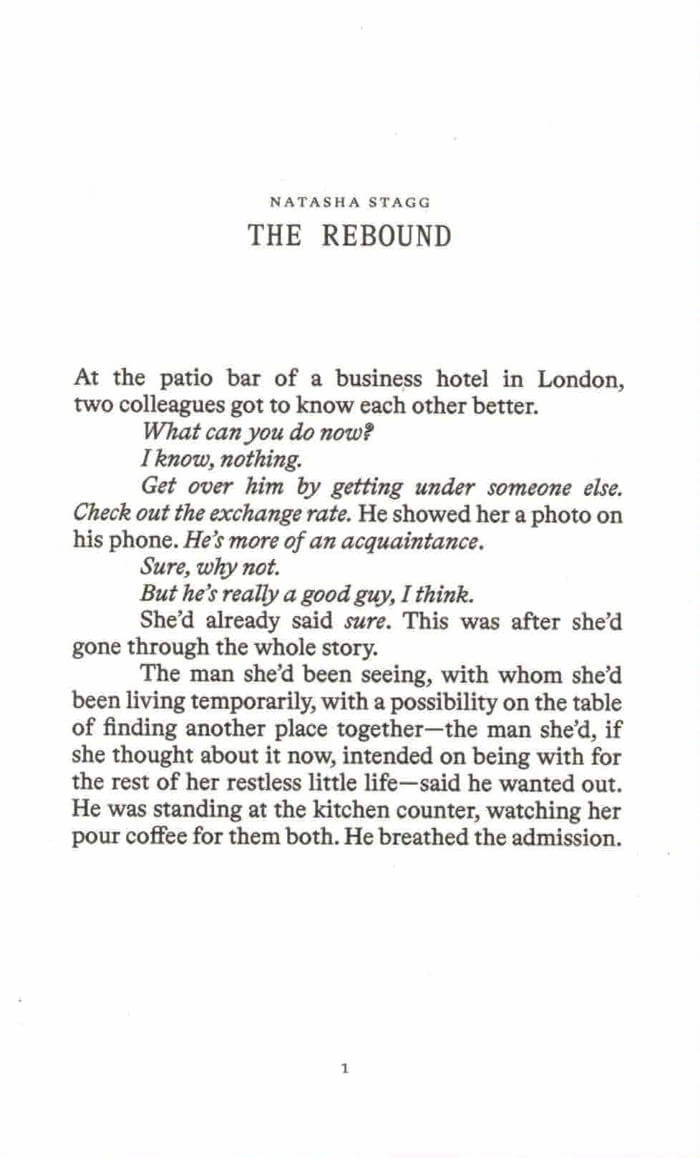
The Rebound
In The Rebound, a short story by author Natasha Stagg (Surveys, Artless), a young woman takes a work trip in the wake of a humiliating break-up, and agrees to be set up on a blind date...
The erotic works of Anaïs Nin started out as a freelance job. To support their bohemian lifestyles, Nin and her writer friends earned a dollar a page writing pornography for an anonymous client. The writers hated The Collector, as they called him, for his repeated instructions to “Concentrate on sex. Leave out the poetry”.
The Collector, a new series of short stories published by jouissance, seeks to pay homage to writers, like Nin, who explored the erotic, the taboo and the connection between jouissance and the creative process. It also honours their chosen, but much maligned, genre. By commissioning some of our favourite female writers to compose erotic short stories, we begin what we hope will be an ever-growing collection of compelling and provocative fiction that will inspire conversation, debate and further creative expression.
Munken Pure 80gsm paper publication with red Singer Sewn binding. Featuring an illustration by Emma Rose Schwartz.

BRICKS FROM THE KILN #7
Matthew Stuart, Harriet Moore and 1 more
Guest edited by artist Helen Marten and literary agent Harriet Moore with Matthew Stuart, this volume of the journal considers what it means for a publication to be an allegorical container. A simple box in which to gather multiple things, an economical set of permutations — rational in one sense, yet defiantly flexible to move. Contributors were approached with an open invitation; some explored the multiplicities of containing or containers, while others filled the printed vessel with their own ongoing preoccupations. The following pages perform as envelope, bag, shell, net, fold, alarm, letter and instruction. There are holes to disappear within; smoke to knot and wind; shadows to unfold — a context that takes in and binds, finding new kinships from unforeseen proximities.
THE FIRE FLOWERS AND THE FLOWER LIGHTS UP –
Lucy Mercer
(spine)
WE SHALL GREET THE MOON AGAIN
Walter Price
(front cover)
BACK PAGES OF ALGIERS DIARIES 2018
Lydia Ourahmane
(inside front & inside back cover)
AN INTRODUCTION TO / NOTES ON / INSTRUCTION FOR THE FRONT NOVEL
Eliza Barry Callahan
(pp.1–16)
SATURDAY MORNING
Kathryn Scanlan
(pp.25–29)
KILLDEER
Jason Schwartz
(pp.33–38)
ALARMS AND EXCURSIONS
Rosmarie Waldrop
(pp.45–61)
"THE BATHROOM"
Najwa Barakat
(pp.67–76)
ARMY ROLLS, A CIRCUMSCRIPTION
Roy Claire Potter
(pp.81–91)
CONCHOMANIA
Felix Bernstein
(pp.95–109)
O-POEM
Line-Gry Hørup
(pp.113–129)
THIS MUSCLE
Cally Spooner
(pp.133–153)
STERLING PARK IN THE DARK
Susan Howe
(pp.159–179)
COCONUTTERY
Mathelinda Nabugodi
(pp.183–193)
YOUR SELF CONFIDENT BABY
Aurelia Guo
(pp.197–206)
BIOGRAPHY OF A NET: HOLDING A VOLUME
Daisy Hildyard
(pp.211–225)
A GUIDE TO THE POETRY OF LI HO
Eliot Weinberger
(pp.229–235)
WOMEN SMOKING
Charline von Heyl
(throughout & p.239)
INFRATHIN
Marcel Duchamp
(throughout & p.239)
THE MAZED WORLD
Rachael Allen
(bookmark insert)
UNTITLED
Helen Marten
(back cover)

Headwaters And Other Short Fictions
Compiling works from nearly five decades, Headwaters (and Other Short Fictions) provides the first comprehensive overview of the narrative and experimental writing of Lucy R. Lippard. While she is best known for her pioneering work as an art writer and activist, Lippard’s fiction helps frame her broader impact on contemporary culture.
Headwaters anthologizes over fifty short works, many previously unpublished. These often experimental vignettes showcase the range of her literary voice while also challenging our understanding of her oeuvre. Sometimes speculative or fragmented, yet always compelling, these pieces range from short-form narrative stories and conceptual fiction to visual essays and political prose.
Included are excerpts from two never-released novels, as well as collaborations with artists Robert Barry, Sol LeWitt, and Jerry Kearns.
Lucy Lippard is author of thirty books on contemporary art and cultural criticism. She has curated some fifty exhibitions in the United States, Europe, and Latin America.
Edited by Jeff Khonsary

Beginnings
What do we start with when telling a story — What tensions activate it — What does it promise — What do we want from it — How do we deliver it — Must it have an end — What about a story which never began — Stories we wish were told — Stories which have always been there — Stories we don’t know how to start.
Beginnings is a collective attempt at questioning protocols and forms of narration, initiated by Manon Michèle. The publication gathers textual and visual works from twenty-nine artists, writers and collectives. With two covers, ninety-six pages, and no end, the publication remains in flux, with no definitive conclusions but the shape of an ongoing question: Where do we start and where might the act of arriving lead.
There’s bodies thrusted through motion, accelerations, collapses, into the folly of life, death, borders and language. There’s following intuition, rabbits, leaders, and the shape of clouds, switching from script to script to escape latched circles and compliance. There’s braiding together clashing dimensions and vital landmarks, processing ghosts to reclaim space, feeding them to trusted spirits. There’s foreseeing new shapes, and believing in what grows. There’s the poetry of saving what can be saved and the pull of letting go. There’s so much to begin with
Contributors
Alice dos Reis, Anaïs Fontanges, Anna Bierler, Auriane Preud’homme, Bravas Graphix, Calli Uzza Layton, Clara Pasteau, Cleo Tsw, D-E-A-L, Elina Birkehag, Eliott Déchamboux, Emilie Pitoiset, Heleen Mineur, Hyo Young Chu, Josefina Anjou, Juliette Lepineau, Kimberley Cosmilla, Manon Michèle, Maria Paris, Marie-Mam Sai Bellier, Mathis Perron, Mia Trabalon, Pablo Bardinet, Pays de Glossolalie, Philip Ullman, Raphaël Massart, Sanae Oujjit, Silvana Mc Nulty, Yunie Chae
Beginnings was edited and designed by Manon Michèle and Oliver Boulton, and published by Ex. Coda, 2025.

The queen's ball
The Queen’s Ball ingests taboo as fuel for a baroque and spiraling story of love in its most prismatic and absurd iterations. Through frightening distortions and hallucinogenic twists of fate, a demented circus of artists, writers, gender-hustling aesthetes, and religious fanatics collude in a glorious discombobulation of propriety and convention. I have never laughed this much at a novel that could somehow shock even the most irreverent of libertines, demanding, at times, absolute disgust. Truly nasty work. Iconic. —Juliana Huxtable
Translated by Kit Schluter
Afterword and notes by Thibaud Croisy, translated by Olivia Baes
Set among the flamboyant demi-monde of the 1970s Paris underground, The Queens’ Ball follows the narrator Copi in his attempt to write a novel as life comes undone around him. His Roman lover Pietro is stolen by a Marilyn Monroe impersonator whose coterie take up residence in Copi’s flat and pump out low-budget pornographic rags and films. His friends leave him, burnt out from the theatrical excess of the decade. And worst of all his editor keeps calling him, demanding to know where the book is. Propelled by Copi’s careening prose and incisive humor, The Queens’ Ball swerves from Paris to Ibiza to New York and back again in a whirlwind frenzy of love, loss, and madness. Featuring an illuminating critical appendix by Copi’s current French editor, Thibaud Croisy, Kit Schluter’s rhapsodic translation marks the début of Copi’s world-renowned fiction in English.
The Queen’s Ball is a heedless novel of transformation of bodies and tenses, a novel of enormity and loss which is, in the end, about writing a novel. Copi is a feckless romantic-his theme is the persistence of love in the phantasmagoria. His tender psychos hurtle through increasingly outré adventures that seem to expand and contract like accordions. Here is crime à la française. Here is a great queen’s verbal aggression, radiant detail, and joyous destructive energy. —Robert Glück
The Queens’ Ball is probably Copi’s masterpiece... By 1978, Copi was already an aesthetic: The Queens’ Ball was the magnet, the inverted whirlpool that brought that aesthetic to the surface. —César Aira

Rave
‘Rave vertelt verhalen uit het leven in het diepst van de nacht.’ Er wordt gefeest, gedronken, drugs genomen. Er wordt gepraat over wil de ideeën en banaliteiten. Dansvloeren, nachtclub krochten, wc’s, parkings en achterafjes worden aangedaan in München, Berlijn, Ibiza. Er wordt gevreeën, op de dealer gewacht en bij ochtend krieken overlegd waar de afterparty voor de preparty voor de volgende party zal doorgaan. ‘Ieder uur sleept een van zo’n weekend in exces fataal verwoeste zich ergens over de heel normale dagdagelijkse mensenstraten f inaal afgemaakt voort.’ Daartussen samplet en mixt Goetz af en toe stemmen van bepaalde producers, tv en krantenredacteurs en andere mediaspelers die ook de realiteit van rave, een gesofisticeerd gecodeerd soort outsider kunst van allemaal insiders, denken te kunnen vatten. Voor lange scheldtirades is er, anders dan in Gestoord, geen plaats. Er moet immers gefeest worden. Rave: de zich steeds herhalende extase van het basale, rave als esthetische theorie en sociale praktijk, als radicale utopie, in de absoluut tegenwoordige tijd. ‘Kom hier, vallende ster.’
De Duitse cultauteur Rainald Goetz (1954) maakte naam als scherp zinnig waarnemer van media en popcultuur, in teksten waarin hij neo-expressionisme en sociaal realisme vermengt met de nerveuze schrijfsels van beat en popauteurs. Goetz is een van de belangrijkste en interessantste stemmen van de hedendaagse Duitse literatuur en ontving meerdere literaire prijzen, waaronder de Georg Büchner Preis 2015. Eerder verscheen bij het balanseer Gestoord, Sebastian Roths vertaling van Irre (1983).
Sebastian Roth (°1991) behaalde een bachelor Taal- en Letterkunde (Engels – Duits), een master Westerse Literatuur en een master Journalistiek. Hij schreef voor Knack Focus, vertaalde nieuwsartikels en reportages voor Knack en werkte mee aan Helblauw (2018), een vertaling van Hellblau (2001) van de Duitse auteur, dj en muzikant Thomas Meinecke door een vijftigkoppig vertaalcollectief.

Bewogen selfies
In Bewogen selfies onderzoekt Obe Alkema de verhouding tussen landschap en herinnering. Wat treft hij aan bij terugkeer naar belangrijke plaatsen uit zijn geheugen? Wat herinnert hij zich niet, maar Google wel? Is er een gedenkschrift te puren uit zijn metadata?
Memoires, rechtstreeks verteld en met omwegen, uit eerste hand en van horen zeggen. Archieven en herinneringen eisen spreektijd, houden het niet meer droog of worden tot spreken gebracht. Wat hebben ze eigenlijk te melden? Ze lopen helemaal leeg, net als Alkema zelf. Een leven zoals zovele, poedelnaakt en geretoucheerd, vol zin en onzin.